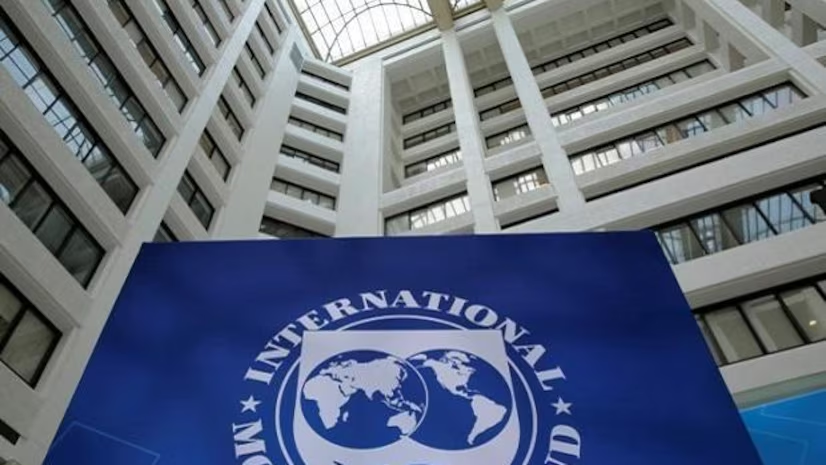The International Monetary Fund (IMF) confirmed its 2024 global growth projection on Tuesday, estimating a growth rate of 3.2 percent for both 2024 and 2025, consistent with its previous forecasts from July. The IMF noted a moderation in inflation but highlighted significant uncertainty surrounding the global economic outlook.
In its latest World Economic Outlook, released during the annual meetings of the IMF and the World Bank in Washington, the IMF pointed out that the global economy is likely to experience a weak medium-term growth phase, prompting a call for essential reforms.
The growth outlook for the United States has been adjusted upward to 2.8 percent for this year, attributed to robust consumption and non-residential investments driven by substantial wage increases. Meanwhile, the euro area is expected to see growth rise to 0.8 percent due to improved exports, with a further increase to 1.2 percent anticipated in 2025, fueled by stronger domestic demand. In the UK, falling interest rates are projected to boost economic growth by 1.1 percent in 2024 and 1.5 percent in 2025.
Pierre-Olivier Gourinchas, the IMF’s director of research, noted that intensifying conflicts have led to “sizeable downside” revisions for low-income and developing countries.
The IMF also revised its outlook for the Middle East and Central Asia, similar to projections made by the World Bank for the region last week, lowering growth estimates by 0.4 percent this year due to Saudi Arabia’s oil production cuts and the ongoing conflict in Sudan. However, growth is expected to rebound to 3.9 percent in 2025.
Headline inflation is projected to decrease to 3.5 percent by the end of 2025, slightly below the 20-year average of 3.6 percent prior to the Covid-19 pandemic and well below its peak of 9.4 percent in 2022. Mr. Gourinchas remarked, “The battle against inflation is almost won.”
This disinflationary trend has occurred without triggering a global recession, an achievement Mr. Gourinchas described as a “major achievement.” After years of monetary tightening, inflation is now approaching the targets set by central banks, with current headline inflation rates at 2.4 percent in the US and 1.7 percent in both the euro area and the UK.
Most advanced economies are beginning to lower interest rates, with the Federal Reserve announcing its first cut of 50 basis points in September. The European Central Bank recently implemented its third quarter-percentage-point cut of the year, and the UK reduced rates by 25 basis points before maintaining its current position last month.
However, Mr. Gourinchas cautioned, “Despite the good news on inflation, risks are now tilted to the downside.” He pointed to geopolitical tensions, particularly in the Middle East, as factors that could adversely affect commodity markets.
The IMF also indicated that central banks might face the risk of maintaining tight monetary policy for too long, potentially hindering economic growth.
Weak Medium-Term Growth
Looking beyond the short-term forecast, the IMF warned of a prolonged period of weak economic growth in the medium term. It stated, “For many advanced and emerging market economies, the five-year-ahead forecast is weaker than the one-year-ahead forecast…suggesting that persistent headwinds to growth will remain prevalent over the medium term.” The IMF projected global growth to be at 3.1 percent in five years, marking “the lowest in decades.”
Much of this slowdown can be attributed to China’s declining outlook, while the medium-term prospects for other regions, including Latin America and the European Union, have also deteriorated. China is expected to see a gradual slowdown, with growth forecasted to “slow only marginally” to 4.8 percent this year.
IMF Calls for Policy Shift
With inflation trending back toward central bank targets, the IMF argued that recent developments present an opportunity for what it terms a “policy triple pivot.” This shift, the IMF suggested, would offer substantial relief to governments.
Lower interest rates in major economies will alleviate pressure on emerging markets as their currencies strengthen against the US dollar. The IMF also urged governments to reconsider fiscal policy and rebuild their fiscal buffers. “While the decline in policy rates provides some scale relief by lowering funding costs, this will not be sufficient, especially as long-term real interest rates remain far above pre-pandemic levels,” it added.
The IMF recently raised concerns about the global fiscal outlook, predicting that global debt will surpass $100 trillion by the end of the year. The fund called on nations to adopt growth and productivity reforms to address these challenges.









